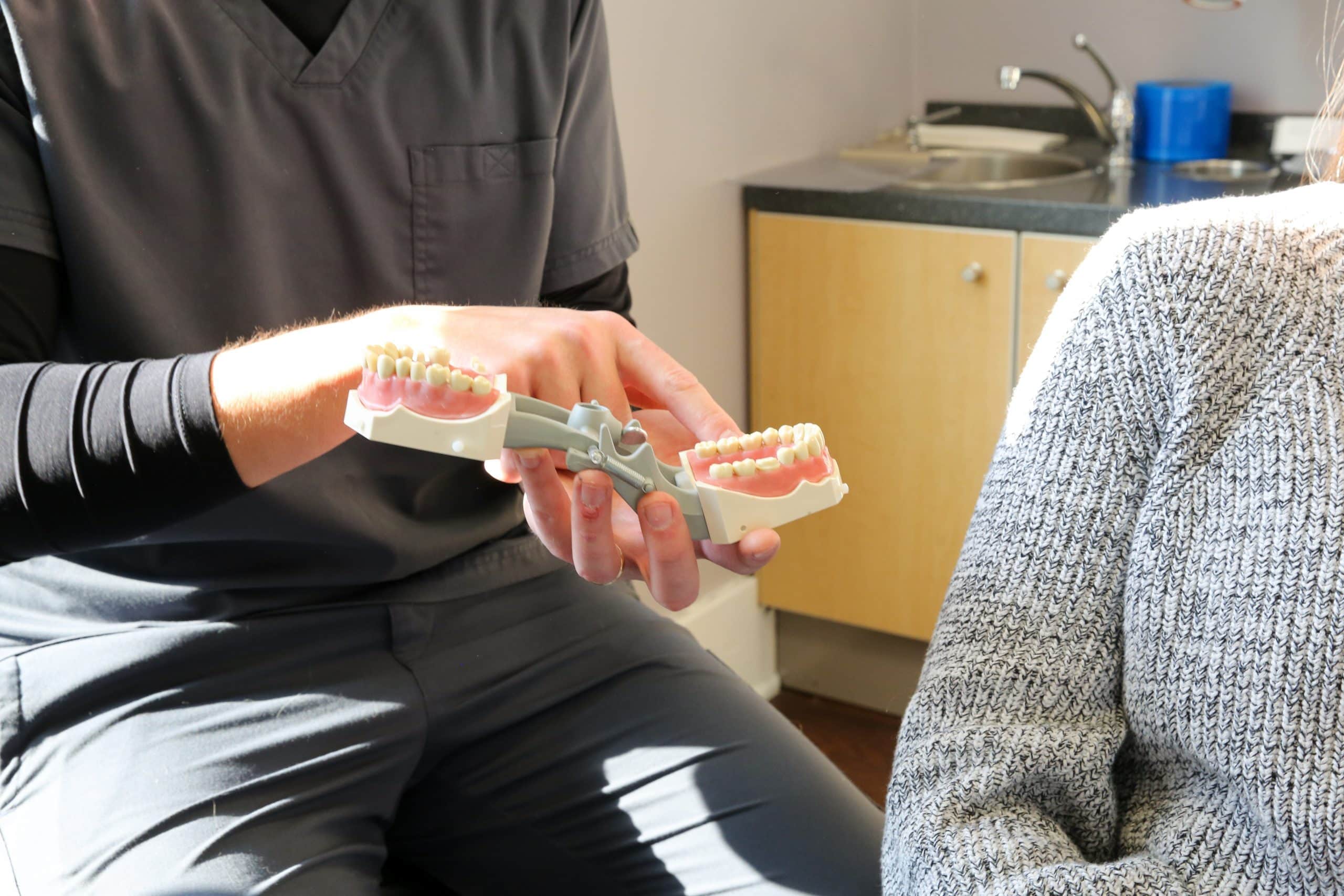
How Can I Prevent Cavities?
We recommend brushing and flossing your teeth twice daily, coupled with regular dental visits two times each year to prevent cavities. Further preventive measures include eating a healthy, balanced diet rich in fresh fruits and vegetables and avoiding sticky sweets that can lead to tooth decay and cavities.
Why Does the Dentist Take X-Rays?
Digital x-rays give us a closer look at the structure of your teeth and jaw. They're a safe, non-invasive way to spot potential issues like cracks, breaks, rot, decay, or abnormalities below the gumline and hidden from plain view.
What is Fluoride and Why is it Important to Dental Health?
Fluoride helps strengthen teeth and protect them against harmful bacteria that can cause dental plaque and cavities. Although fluoride occurs naturally in our bodies, most people require fluoride from other sources to adequately protect sensitive tooth enamel. Other ways to increase your fluoride intake include drinking fluoridated water and using toothpaste or mouthwash with fluoride listed as an ingredient.
What Are Cavity-Fighting Sealants and How Do They Work?
Dental sealants are a thin protective coating carefully applied to the chewing surfaces of your teeth. This helps prevent the erosion of dental enamel and the formation of cavities. We highly recommend cavity-fighting sealants for children who may not be able to brush hard-to-reach tooth surfaces properly and are at greater risk for developing cavities. However, adults can also benefit from the protective properties of sealants.
Reach out to us and explore whether dental sealants are a good treatment option for you and your family.
What can I Do About Sensitive Teeth?
At Wooten Dentistry, we have many treatment options for patients experiencing tooth sensitivity, especially with hot and cold foods or beverages. At our office, your options include fluoride treatment, dental bonding, or veneers. All of these treatments protect and cover the sensitive surfaces of your teeth and protect them from further erosion. At home, you can try toothpaste specifically for tooth sensitivity.
We look forward to discussing tooth sensitivity treatment options with you at your next appointment.


What is Periodontal Disease?
Periodontal disease, also known as gum disease, occurs when gums become infected and inflamed. Over time, the symptoms of this disease include:
- Foul breath
- Pain and bleeding in the gums
- Gum recession
- Loose teeth
- Painful abscesses
- Possible loss of teeth in extreme cases
Regular flossing and brushing can help, but the gum line is difficult to clean without treatment from a dental professional. That’s where routine dental visits every six months can aid even more in preventing and reversing periodontal gum disease when caught and treated early enough.
What Should I Do About Bleeding Gums?
Bleeding gums are a sign of an underlying infection like gingivitis or periodontal (gum) disease. The best way to protect your gums from infection is with an oral care regimen that includes brushing at least twice daily and flossing your teeth after meals and before bedtime. Dr. Wooten may also recommend antiseptic mouthwash, antibiotic treatment, or a special deep-cleaning procedure to eliminate the dangerous plaque and tartar from your gum line.
Why Should I Use a Mouthguard?
We recommend specially-fitted athletic mouthguards to protect your teeth while playing sports that involve falls or body contact. These activities include, but are not limited to:
- Football
- Hockey
- Lacrosse
- Mountain biking
- Skateboarding
In some cases, patients may require a nightguard, which prevents the teeth from grinding against each other during sleep. These custom-made nightguards also protect your teeth from complications caused by tooth grinding or forceful clenching, such as temporomandibular joint disorders (TMJ) or bruxism.
If you have any questions, please feel free to contact our office via phone, email, or schedule an appointment online.
